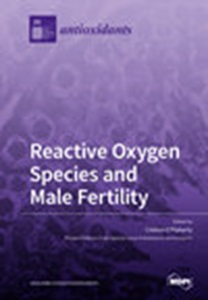肠道微生物群衍生的三甲胺会促进炎症,并对 Caco-2 细胞的表观遗传和线粒体稳态产生潜在影响
IF 6
2区 医学
Q1 BIOCHEMISTRY & MOLECULAR BIOLOGY
引用次数: 0
摘要
三甲胺(TMA)是食物前体在肠道微生物群代谢过程中产生的副产品,它不仅是三甲胺-N-氧化物(TMAO)的前体,还可能影响肠道健康。研究人员使用 Caco-2 细胞肠上皮细胞体外模型来评估 TMA 对炎症、细胞旁通透性、表观遗传学和线粒体功能的影响。暴露于 1 mM TMA 24 小时后,促炎细胞因子(IL-6、IL-1β)的表达水平显著增加。暴露于 TMA 与 SIRT1(TMA 1 mM、400 μM、10 μM)和 DNMT1(TMA 1 mM、400 μM)基因的上调有关,而 DNMT3A 的表达则下降(TMA 1 mM)。在无细胞模型中,TMA(从 0.1 µM 到 1 mM)会诱导 Sirtuin 酶活性的剂量依赖性降低。在 Caco-2 细胞中,TMA 会降低总 ATP 水平,并显著下调 ND6 的表达(TMA 1 mM)。过量的 TMA(1 mM)会减少细胞内线粒体 DNA 的拷贝数,并增加 mtDNA D 环区域光链启动子的甲基化。此外,TMA(1 mM、400 µM、10 µM)还会增加 Caco-2 上皮细胞的通透性,这一点可以从经上皮电阻值的降低得到证明。根据我们的初步研究结果,TMA 过量可能会促进肠道细胞的炎症反应,并干扰表观遗传和线粒体的平衡。本文章由计算机程序翻译,如有差异,请以英文原文为准。
Gut Microbiota-Derived Trimethylamine Promotes Inflammation with a Potential Impact on Epigenetic and Mitochondrial Homeostasis in Caco-2 Cells
Trimethylamine (TMA), a byproduct of gut microbiota metabolism from dietary precursors, is not only the precursor of trimethylamine-N-oxide (TMAO) but may also affect gut health. An in vitro model of intestinal epithelium of Caco-2 cells was used to evaluate the impact of TMA on inflammation, paracellular permeability, epigenetics and mitochondrial functions. The expression levels of pro-inflammatory cytokines (IL-6, IL-1β) increased significantly after 24 h exposure to TMA 1 mM. TMA exposure was associated with an upregulation of SIRT1 (TMA 1 mM, 400 μM, 10 μM) and DNMT1 (TMA 1 mM, 400 µM) genes, while DNMT3A expression decreased (TMA 1 mM). In a cell-free model, TMA (from 0.1 µM to 1 mM) induced a dose-dependent reduction in Sirtuin enzyme activity. In Caco-2 cells, TMA reduced total ATP levels and significantly downregulated ND6 expression (TMA 1 mM). TMA excess (1 mM) reduced intracellular mitochondrial DNA copy numbers and increased the methylation of the light-strand promoter in the D-loop area of mtDNA. Also, TMA (1 mM, 400 µM, 10 µM) increased the permeability of Caco-2 epithelium, as evidenced by the reduced transepithelial electrical resistance values. Based on our preliminary results, TMA excess might promote inflammation in intestinal cells and disturb epigenetic and mitochondrial homeostasis.
求助全文
通过发布文献求助,成功后即可免费获取论文全文。
去求助
来源期刊

Antioxidants
Biochemistry, Genetics and Molecular Biology-Physiology
CiteScore
10.60
自引率
11.40%
发文量
2123
审稿时长
16.3 days
期刊介绍:
Antioxidants (ISSN 2076-3921), provides an advanced forum for studies related to the science and technology of antioxidants. It publishes research papers, reviews and communications. Our aim is to encourage scientists to publish their experimental and theoretical results in as much detail as possible. There is no restriction on the length of the papers. The full experimental details must be provided so that the results can be reproduced. Electronic files and software regarding the full details of the calculation or experimental procedure, if unable to be published in a normal way, can be deposited as supplementary electronic material.
 求助内容:
求助内容: 应助结果提醒方式:
应助结果提醒方式:


